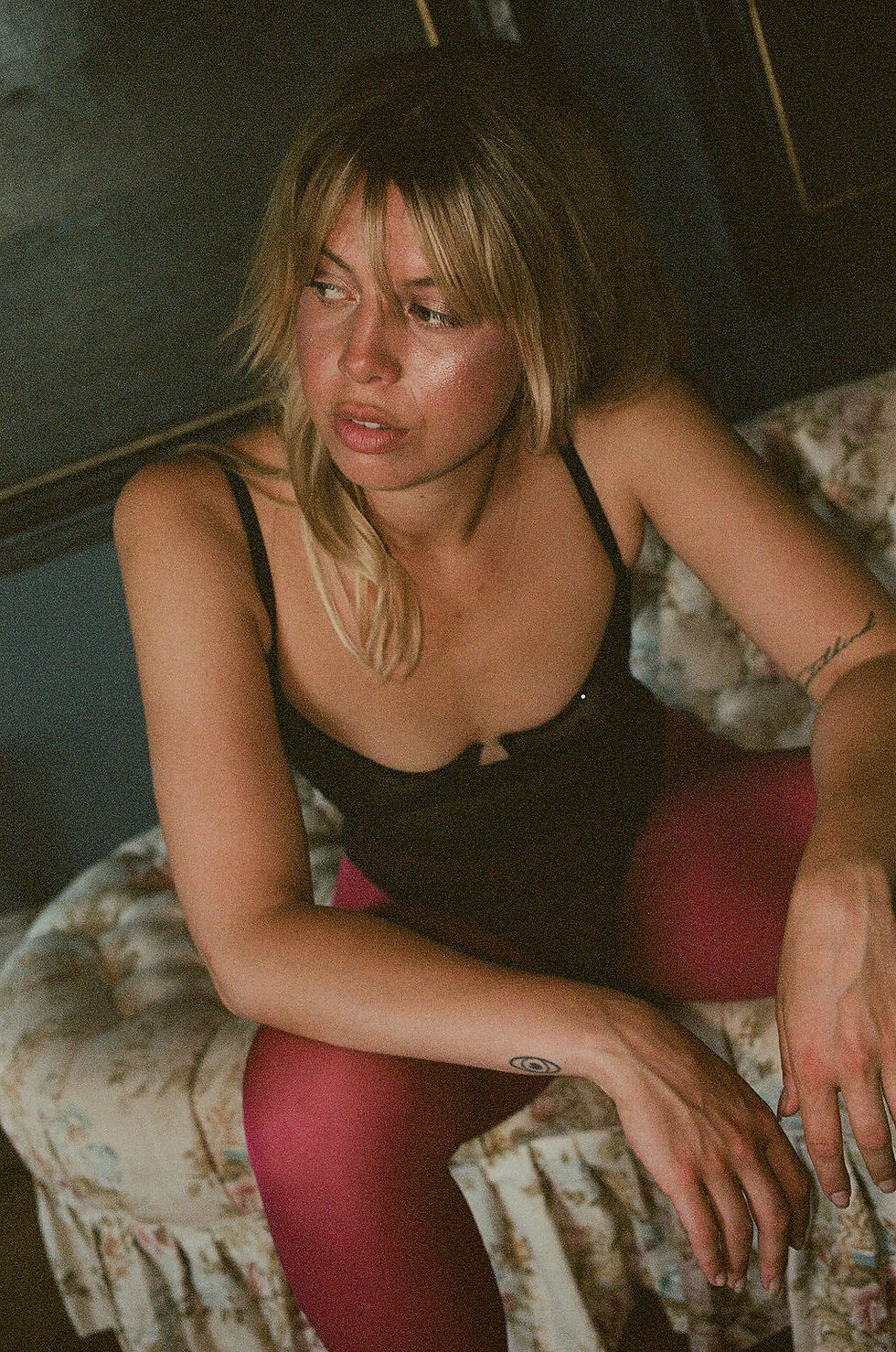Reclaiming the Postpartum Journey: An Interview with Danielle Bensky
- Umaversity

- Oct 10, 2025
- 4 min read
The postpartum period — often called the fourth trimester — is one of the most transformative, raw, and vulnerable phases of a woman+’s life. Yet, in many parts of the world, this sacred window has been rushed, ignored, or medicalized. In this Umaversity Podcast conversation, founder Jo Sarah sits down with Danielle Bensky, a Postpartum Doula and Mother’s Mentor, to explore how we can return to nurturing, honoring, and supporting mothers in the way nature intended.
“Societies who know how to care for their new moms, this is how they care for their new moms. My mission is to re-educate and reclaim it for us.” — Danielle Bensky
How did your journey as a postpartum doula begin?
I became a postpartum doula after my daughter was born — though the training began before that. I’ve always been fascinated by pregnancy, motherhood, and the sacred bond between parent and child. Later, I learned that this passion runs in my lineage: my mother wanted to be a midwife, created one of the first websites about breastfeeding, and even my grandmother offered childbirth preparation courses. It’s as if my path was written in my DNA.
What exactly does a postpartum doula do?
A postpartum doula supports the family before and after birth — usually for six to eight weeks. I cook nourishing meals, help with household tasks, and most importantly, provide emotional care. Sometimes that means a warm hug, sometimes a gentle body rub while the mother breastfeeds.We also prepare together during pregnancy — building what I call the postpartum village. Just as a maid of honor helps you plan your wedding, I help you plan your postpartum experience — from organizing a meal train to ensuring you’re surrounded by support and love.
And what does it mean to be a “Mother’s Mentor”?
Motherhood doesn’t end after six weeks. I continue supporting women+ through the first 1,000 days — that sacred period from conception to age two. It’s about listening without judgment, offering empathy, and helping mothers reconnect with themselves. Most of us don’t need more advice — we need to be heard, seen, and held.
You speak about the “five universal postpartum needs.” What are they?
Across cultures, we find five universal needs for postpartum healing:
Rest — Around 30–40 days of deep rest to allow physical and emotional recovery.
Loving Touch — From massages to body rubs to simply being held.
Nourishment — Warm, soft, easy-to-digest food that heals from within.
Connection with Nature — Slowing down, grounding, and aligning with natural rhythms.
Companionship — The presence of others; the reminder that motherhood was never meant to be done alone.
These needs are universal because they speak to the core of our human — and feminine — experience.
Why is companionship such an essential part of postpartum care?
Because we were never meant to do this alone.Putting a mother in four walls with a newborn is against everything her body and soul expect. We evolved in tribes — surrounded by sisters, aunties, grandmothers. Companionship protects mental health and gives mothers a sense of belonging. You can create this modern village through a Mother’s Blessing ceremony, a Meal Train, or even the Seven Sisters for Seven Days concept — seven people taking turns to care for you during the first week.
What role does nourishment play during this time?
Warm, soft, and cooked food is key. Think soups, stews, and broths rather than sandwiches or salads. Your digestion is slower after birth — your body needs warmth, not effort.Nutrients like collagen, calcium, iron, and healthy fats (avocados, nuts, olive oil) are essential. And ideally, that food is made by someone who loves you — because love changes the taste.
Many women+ in the West are rediscovering practices like Yoni Steaming. What’s your view?
Yoni steaming is a beautiful, ancient practice. It’s about warmth, cleansing, and reconnecting with your body. The key is safety — ensuring the water is not too hot, using gentle herbs, and setting up the space mindfully. It’s not just physical — it’s spiritual. It honors the body that gave life.
You also emphasize the connection with nature. Why is that important postpartum?
Nature teaches patience. A seed doesn’t rush to become a tree. Postpartum is the same — it’s a slow season.Bring nature into your home — flowers, herbs, sunlight, sounds of the ocean. Create a sanctuary where you can breathe and ground yourself.And remember: when you feel slow, go slower.
How can career-driven or entrepreneurial women+ navigate postpartum when time off isn’t always possible?
It’s a tough reality. I tell mothers to plan postpartum into their financial year if possible, delegate where they can, and remember: you cannot pour from an empty cup. It takes two years — physically and energetically — for the body to fully recover from birth. Postpartum is not a pause in your life; it’s a foundation for everything that follows.
Any final advice for women+ preparing for this transition?
Prepare your village early. Set boundaries with love. Normalize your emotions — they’re valid.And remember: you are the CEO of your family. Everyone else — your friends, your mom, even your doula — are your advisors.Motherhood is not about doing it all. It’s about being present for what truly matters.
About Danielle
Danielle Bensky is a certified Postpartum Doula, Mother’s Mentor, and Aware Parenting advocate based in Amsterdam. Through her holistic and psychological background, she supports mothers in navigating the early months of parenthood with calm, connection, and confidence. Her approach integrates nurturing touch, emotional support, and traditional postpartum wisdom — bridging modern science and ancient care.
🎟️ Join our Umaversity community for online and offline events, expert support, and unapologetic self-discovery.
📩 Subscribe to our weekly educational newsletter here.
Listen/Watch the Full Conversation
📺 Watch the full Interview on the Umaversity Podcast




Comments